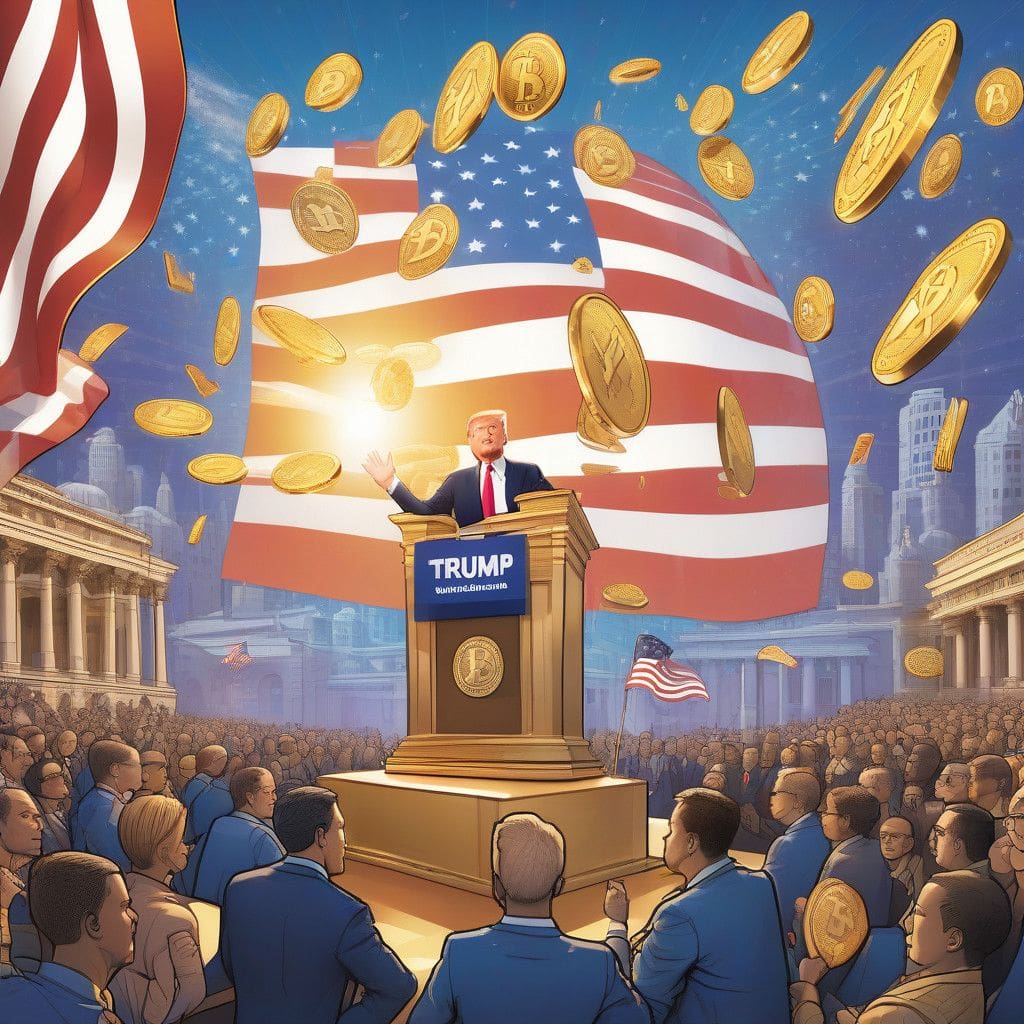As the countdown to Election Day intensifies, the spotlight is firmly on cryptocurrency in the heated competition between former President Donald Trump and Vice President Kamala Harris. With key states like Georgia, Texas, and Arizona nearing the close of voting, the candidates’ positions on digital assets may become a pivotal factor influencing undecided voters and swinging the election’s outcome.
Donald Trump has recently pivoted towards a pro-Bitcoin stance, urging voters to rally behind his campaign with promises centered around bolstering Bitcoin production in the United States. In a recent social media post, Trump claimed he would relocate all Bitcoin mining operations to the US, framing Vice President Kamala Harris’s policies as a ‘war on crypto.’ Notably, he celebrated the anniversary of Bitcoin’s white paper, positioning himself as an advocate for this digital asset.
This change in strategy comes in stark contrast to Trump’s previous vocal skepticism about Bitcoin, which he had dismissed as a ‘scam’ and a creation based on ‘thin air’. Yet, Trump’s current promises, which include commitments to restrict Bitcoin mining domestically and prevent the establishment of a central bank digital currency, are designed to attract pro-crypto voters. Recent polls highlight a closely contested race, particularly in regions where voters feel strongly about cryptocurrency regulations.
On the opposing side, Kamala Harris represents a different approach to digital assets. While lacking Trump’s recent zeal for Bitcoin, Harris has extended her campaign into aspects of blockchain technology and cryptocurrency regulation. Her policies may be aimed at ensuring consumer protection and regulatory clarity, vital components for a market still grappling with uncertainty.
The growing concern surrounding misinformation cannot be overlooked. Social media has been rife with inaccuracies regarding both candidates’ positions. For example, a prominent figure in the crypto community, Michael Saylor of MicroStrategy, incorrectly stated that Trump proposed eliminating capital gains taxes on cryptocurrency transactions. Such misinformation complicates voters’ comprehension of both candidates’ actual plans, further blurring the lines as Election Day approaches.
The interplay of cryptocurrency policies in this election is vital, especially as polling indicates that voters in crucial states are increasingly prioritizing economic issues, including the future of digital currencies. Statistics reveal a significant number of Americans have invested in cryptocurrencies or plan to in the near future. According to recent surveys, nearly 15% of the American adult population owns Bitcoin, alongside a larger percentage that has expressed interest in exploring this investment avenue. This trend underscores the magnitude of crypto-related policies as a decisive factor in voter decision-making.
Moreover, the timing of this election coincides with an unprecedented surge in crypto adoption. While candidates may push their positions, voters are savvy; many are aware of both the benefits and pitfalls associated with digital currencies. As discussions around regulation and security take center stage, candidates must present clear, actionable plans that resonate with constituents not only in major urban centers but also in rural areas where concerns about Bitcoin mining’s environmental impact are paramount.
With voting nearing completion in pivotal states, the candidates’ strategies regarding cryptocurrency could very well determine their fate in an election too close to call. As voters consider their options, the clarity of each candidate’s approach to this fast-evolving landscape will be essential in guiding their choices.
The unfolding dynamics of digital currencies in the political arena highlight the necessity of informed policymaking and clear communication with the public. In a race where economic considerations dominate, Trump’s embrace of Bitcoin directly contrasts with Harris’s regulatory approach, leaving voters to weigh their priorities and the implications of each candidate’s policies.
As the election results unfold, the ramifications of crypto policies in shaping not only electoral outcomes but also future governance around digital assets are critical. The stakes are high, and as both candidates vie for the crypto vote, the narrative surrounding digital currencies will undoubtedly continue to evolve.












